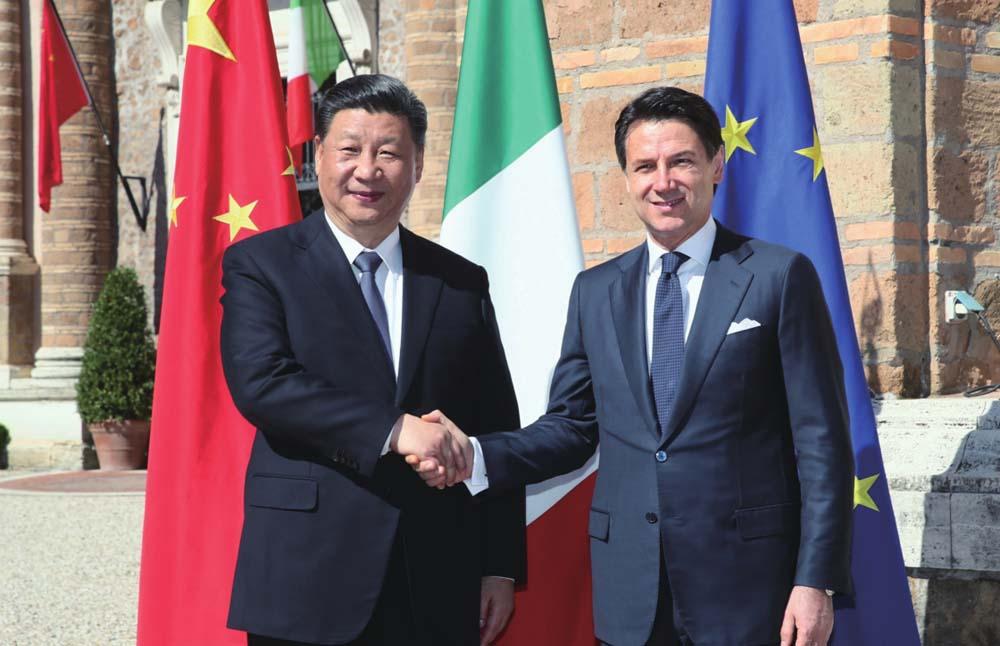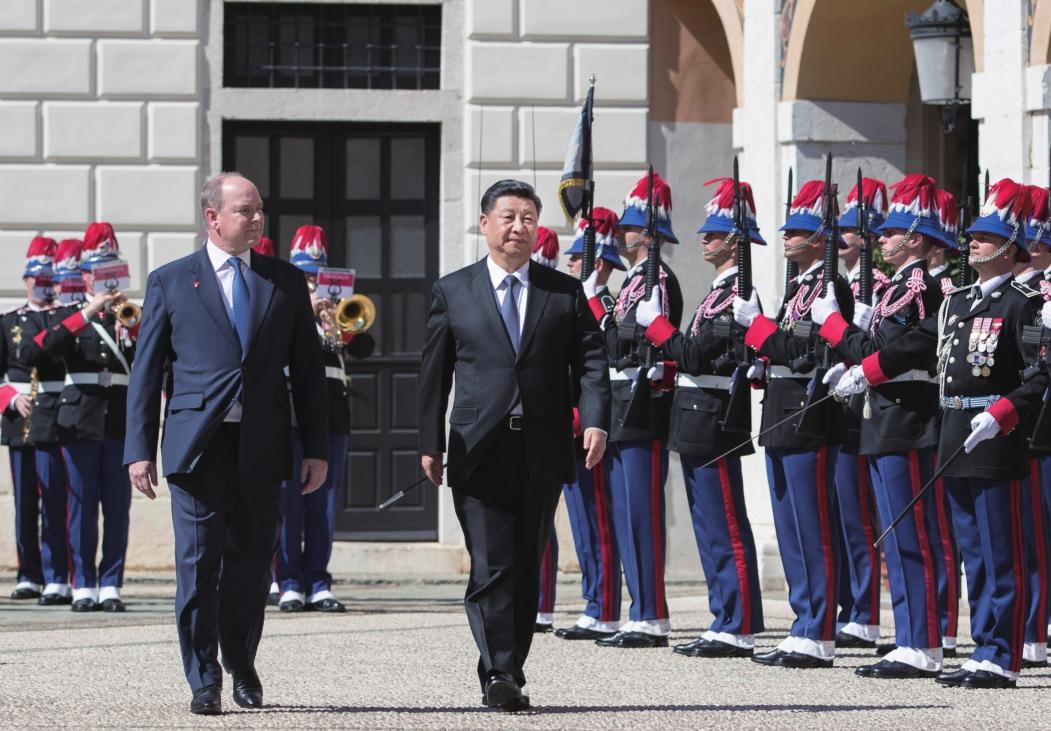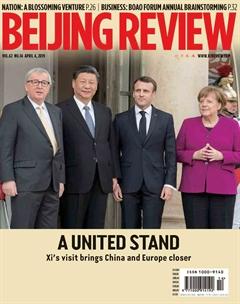STANDING TOGETHER
By Wen Qing


Italian novelist Alberto Moravia once wrote,“Friendships are not chosen by chance, but according to the passions that dominate us.” That was true even some 2,000 years ago when Xian, capital of the Western Han Dynasty (206 B.C.-A.D. 25) in China, and Rome were linked up by the ancient Silk Road driven by the passion for connectivity and growth. Today, once again propelled by strong growth incentives, modern China and Italy have joined forces to revive the historical trade route. On March 23, during Chinese President Xi Jinpings state visit, Italy signed a memorandum of understanding to join the Belt and Road Initiative.
Italy was the first leg of Xis three-nation Europe visit from March 21 to 26, Monaco and France being the other two. The careful selection of the three European nations for Xis first foreign visit in 2019 illustrates the great importance China attaches to China-EU relations, Cui Hongjian, a senior researcher on EU studies with the China Institute of International Studies(CIIS), said.
The world today is undergoing unprecedented changes and Europe faces both internal problems and external pressures. China and Europe, as two major forces, should contribute to sustainable global economic growth and world peace and development, Cui added.
Also, Chinas Two Sessions, the annual meetings of the national legislature and the top political advisory body held in March, sent out a clear signal that China would expand its opening up for win-win results to be shared with the rest of the world.
Against this backdrop, Xis Europe visit is not only a critical step in enhancing major-country diplomacy, but also gives positive information to the world at large and creates a favorable external environment for Chinas economic and social development, he said.
Xis overture was greeted with positive response from European leaders, who stressed the importance of consolidating China-Europe ties to safeguard multilateralism and their willingness to do so. The bilateral cooperation with Italy alone is anticipated to give fresh impetus to the China-Europe comprehensive strategic partnership and add some stability in a world descending into chaos.
Belt and Road in Europe
Xis visit brought greater recognition for the Belt and Road Initiative. Italy signed a memorandum of understanding with China on jointly advancing the initiative, while France signed agreements for demonstration projects in third-party markets and kicked off a third-party market fund.
Experts say Italys joining the initiative will stimulate its flailing economy. Many European economies, including Italy, have still not succeeded in casting off the shadow of the 2008 financial crisis and lack the driving force for economic growth, Zheng Yongnian, a profes- sor with the University of Singapore, told China News Service. Zheng claimed that participating in the Belt and Road and jointly developing third-party international markets with China can bring tremendous opportunities for Italys economic recovery.
Moreover, according to Zheng, Italy is desperate to upgrade its crumbling infrastructure. The Belt and Road Initiative offers a remedy as it focuses on connectivity and infrastructure building.
While decaying infrastructure has long troubled the Italian Government, its tight budget has limited its ability to address the deficiency.
The Port of Trieste is an example of infrastructural decay. Once a shining pearl in northeast Italy enjoying strategic importance, it lost its luster in recent decades.
Meanwhile, the various infrastructure projects built and operated under the Belt and Road framework such as the Port of Piraeus in Greece have had a positive demonstrational effect on Italy.
On March 23, the Port of Trieste authorities and the China Communications Construction Co. (CCCC) signed a cooperation agreement in the presence of Xi and Italian Prime Minister Giuseppe Conte. The CCCC will invest over $1 billion to upgrade the ports handling capacity and transport efficiency as well as facilitate infrastructure development such as railways to connect it to central Europe.
According to Zhang Yuyan, a professor with the Chinese Academy of Social Sciences, as the first Group of Seven member country to sign a Belt and Road memorandum with China, Italy will serve as a model to attract more EU members and create more economic benefits.
“At present, most countries participating in the initiative are developing ones. Italy is a developed country and an important country in Europe. Its cooperation with China under the Belt and Road framework will create a demonstration and radiation effect,” Zhang said.
Major members of the EU, including Germany and France, have recognized the economic potential of the initiative. Although France has not officially joined the Belt and Road Initiative, French President Emmanuel Macron has expressed willingness to carry out practical cooperation with China on many occasions under the framework. In fact, France and China signed an agreement to jointly explore a third-party market in 2015, the first time China signed such a pact with other countries and an important model of cooperation under the Belt and Road Initiative.

